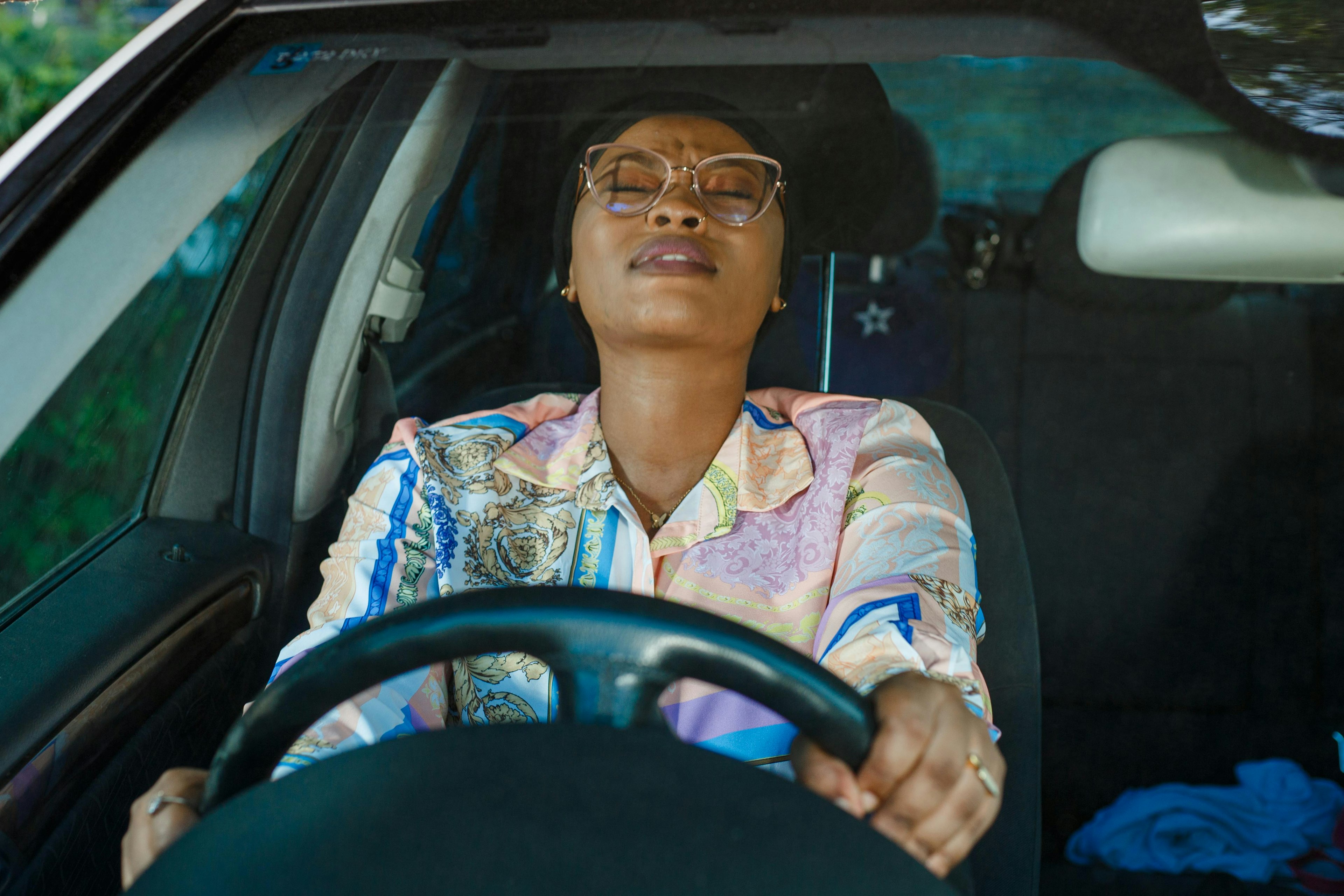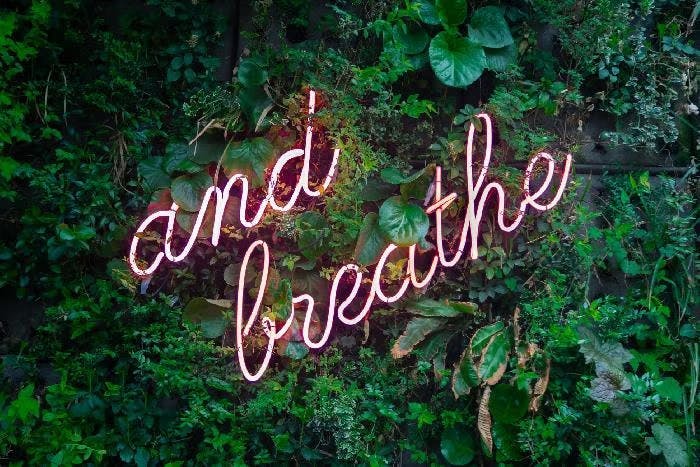
Whatever stage you're at, it’s absolutely normal to have a bad driving lesson. In fact, it’s very rare that a learner driver will get through every lesson smoothly—because that’s not usually how the learning process works. When you’re working on new skills, it’s quite overwhelming for your brain. There will be good days and bad days, and days where you seem to have forgotten everything you thought you knew.
So firstly, know that you aren’t alone. And secondly, whether you’ve been in tears during your driving lesson, or your instructor has had to grab the steering wheel, we’re here with some insight into how to make the best of the situation.
Bad first driving lesson
For most people, learning to drive is a big milestone, and one that is quite exciting. So if your first lesson doesn’t live up to your expectations, it can be disheartening. But it’s far too early to be asking yourself “why am I so bad at driving?”. You’re a beginner, and mistakes are part of how you learn. You might be tempted to give up after a bad experience, but the best thing to do is stick with it.
Better days are coming! Dipping in and out of lessons will just make the process more difficult in the long run. Even if you continue to struggle with your driving lessons for a while, recognise that it’s good to be stretched. That’s especially the case when the challenge leads to something great—in this case, a driving licence.
Feel like you’re getting worse at driving?
Here’s another thing that’s normal: feeling like you’ve hit a wall and aren’t making progress. When you first get behind the wheel of a car, you have to pick up a lot of new skills very quickly. That can make it seem like you’re making enormous progress—and you are. Within your first lesson or two, you’ll learn to steer, position your car and change gears. But when it comes to consolidating those skills and getting them consistent, that’s something that takes time and practice. It might seem like you’re plateauing, but you’re more likely learning to apply your newfound skills to different contexts.

Just because it's normal, though, doesn't mean it isn't frustrating. Here are some practical steps you can take if you aren’t pleased with your progress:
- Talk to your driving instructor about it. They should give you regular feedback—and if they aren’t doing so, ask them to start! If you keep making mistakes on your driving lessons, they might need to take you back a few steps, so you can re-learn a skill with the right technique.
- Have your test booked. Check with your instructor about a realistic timeframe for being test-ready, then get it in your diary. If you’ve got a date to work towards, this can help motivate you, and stop your driving lessons needlessly dragging on. It’ll focus your mind, and give you and your instructor a specific goal.
- Identify the areas you’re struggling with, and put in the work. Whatever part of driving you find difficult, there’s guaranteed to be resources out there to help. Read up on the theory, and, if you can, practice in between lessons.
Bad driving lesson before the test
Even confident learners can have bad driving lessons in the time leading up to their test. Often it’s just that you are more mindful that you should be driving at test standard, and nerves get in the way. Having a bad driving lesson before your practical doesn’t mean that you aren’t ready to take your test. All it means is that you’re not a perfect—and thankfully, your driving examiner isn’t expecting you to be.
All drivers make mistakes; that’s why you’re allowed up to 15 minor faults before you fail. If you’ve had a bad driving lesson before your test, try and settle your nerves. Take some deep breaths and put things into perspective. Making mistakes now at least gives you a chance to set them right before the practical.
How do you recover from a bad driving lesson?

Just like if you’ve had a bad day at work or school, there are different things you can do to cheer yourself up. Obviously this isn’t a one-size-fits-all situation, but here are some useful suggestions on how to get over a bad driving lesson:
- Take some time to reflect on why the lesson was bad. If you know what went wrong, then you’re halfway to fixing it.
- Focus on the positives. What went well? Even if you did something out-of-character, that just goes to show that you know how to do it better. And you will do so again.
- Distract yourself. Rather than wallowing, one of the best things you can do is something—anything—else.
- Don’t let embarrassment overcome you. Your instructor only became qualified after teaching loads of different pupils how to drive. That means that they’ve pretty much seen it all: both mistakes and reactions to those mistakes. They know that anybody can have a bad day. It’s the fact that you keep coming back that counts.
Need more in-depth advice? Here are our top tips for getting over driving mistakes.
Bad Driving Lesson FAQs
① Why is driving so stressful?
Driving can be stressful, especially for new or learner drivers. There’s a couple of reasons for this.
- There’s a lot at stake. Driving on the roads carries risks—and when you’re new to the game, you can feel out of your depth. As you grow in confidence and ability, you’re less likely to make serious mistakes—and although driving still poses risks, you will be better placed to keep calm under pressure.
- Learning to drive is a challenge. There’s no doubt about it: driving is hard when you’re just starting out. There are, after all, lots of things to remember. Not only do you have to get used to lots of different individual actions, you’ve got to physically coordinate them too. And then on top of that, you need to follow the rules of the road, making sure you’re obeying speed limits, road signs and markings. Believe it or not, though, these things will become second nature eventually. It just takes time!
② How can I stop being scared of driving lessons?
Getting on the road can be daunting, but that’s exactly what your driving lessons are for. They’re a chance to build your confidence and skills, with the safety net of an instructor alongside you. With dual controls at their disposal, and experience of teaching nervous drivers, they will do everything within their power to keep you safe. If you’re worrying about your driving lessons, then it’s worth checking out our article on learning with anxiety.
③ Is it normal to be a bad driver at first?
Absolutely nobody gets behind the wheel for the very first time and is instantly a perfect driver. Even if you’ve studied the theory extensively, and know exactly how you should use the pedals and gear stick, you’re still going to have to learn to do so in practice. Tonnes of learners feel like they’re bad drivers at first, and the vast majority go on to pass their test within a few months of starting lessons. Eventually, you’ll get there too—and you’ll wonder why you ever worried about starting out as a bad driver.
④ Why are driving instructors rude?
The nature of a driving instructor’s job means they are ultimately responsible for you. Your actions impact on the safety of you, them and other road users, and so sometimes they have to speak bluntly. This might sometimes come across as rudeness, particularly in a culture where we aren’t always used to such direct delivery. Chances are that it’s not personal, and your instructor is just trying to be clear and unambiguous.
Of course, this doesn’t excuse real rudeness. If your driving instructor’s manner is impeding your learning, it’s worth raising the issue with them directly. It might be an uncomfortable conversation, so it’s one worth practising beforehand. Have a rough idea of what you want to say, so that it’s a calm and productive discussion. And, ultimately, you are free to look elsewhere for a driving instructor who treats you better.
⑤ How do I know if my driving instructor is bad?
Most DVSA-approved driving instructors aren’t bad, per se; they’ve undertaken extensive training to be in a position to teach you. But occasionally, you might not click with an instructor. As long as you’re not feeling unsafe, it’s usually worth giving it a bit of time. You might find that you warm to them and their teaching methods. If things don’t resolve themselves, there are 2 things you can do.
- Raise any issues directly with them, or with the driving school they work under. It always helps to have specific examples to illustrate your points, and an idea of how you want things to change.
- If their style of teaching really doesn’t suit you, you can always shop around for someone who fits the bill better. There are plenty of top driving instructors out there—and once you find your match, you can look forward to enjoyable and productive lessons.
Still worried that you're not learning with the right person? Check out our signs of a bad driving instructor.
Subscribe for driving advice, offers & more
We'd love to let you know about our courses, news and offers via email. You may unsubscribe at any time.
Star Genie Limited trading as PassMeFast. Company number 10093359
Copyright © 2024 owned by Star Genie Limited
PassMeFast, Blue Tower, MediaCityUK, Salford, M50 2ST
